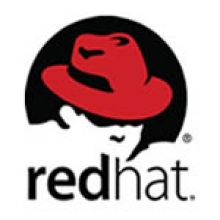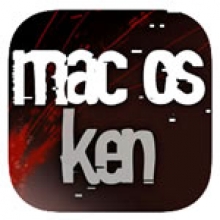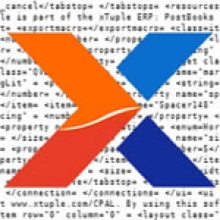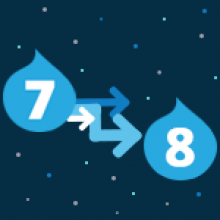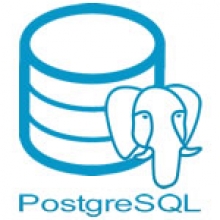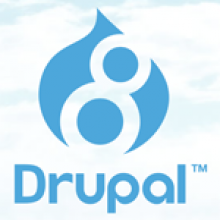Let's take a brief stroll down Memory Lane... back to a time when a lot of people didn't recognize, or were a little afraid of, the phrase "open source." And what that means today for xTuple and our community of customers.
xTuple's Collective Brainpower Blog
Big changes are taking place in the ERP (enterprise resource planning) space. CIO and key decision makers in businesses across all industries are taking note and making big plans for their ERP systems and budgets in 2019. Because they understand that this is not just a new technology to add to their stack, ERP is a business tool that can guide them toward a competitive edge in their respective marketplaces.
We hear things like this every day: "xTuple's scripting environment is such a powerful tool," and "I just wanted to give the dev team and all contributors a kudos for making such a solid and mold-able product." Thanks to a member of our community, you can start building your own xTuple Scripting ToolBox today. Avoid beating your head against the wall as you attempt to leverage the flexibility of open source software and accomplish some scripting to custom fit xTuple for your specific needs.
By now, everyone has heard about the largest software company transaction in history. IBM, the world's ninth-largest information technology company (by revenue), is paying $34 billion to acquire Red Hat, the North Carolina company credited with popularizing Linux — the open source operating system (OS) and, more recently, all kinds of open source hybrid cloud computing infrastructure.
Trying to solve the sales and marketing challenges of today and prepare for tomorrow's unique business needs? Suffering compliance headaches, such as sales tax complexity? Big changes in xTuple warranted bumping the major version numbering to meet — no, exceed — your requirements. Here's why you should care, what customer's development sponsorship we all have to thank, and what's in 5.0 for you.
We live in a time of rapid change. Things happen so quickly that many of us don't have time to reflect on the present, much less the past. Many don't seem to realize that DevOps, APIs and interface generation, Internet of Things (IoT), edge computing, code linting, test-driven development, prototype-based inheritance, and a whole slew of other state-of-the-art stuff isn't new. The names might be, but the ideas are not. The details have changed, but most of the underlying concepts are the same. We in the technology industry do ourselves a great disservice when we ignore — or don't understand — the past.
Every morning I hit the ground running by listening to a daily Apple news podcast to get the latest goings-on in the world of tech giant Apple. Mac OS Ken, by his own admission, eats, sleeps and breathes Apple news and news related to Apple news. I've been a faithful listener for all of his more than 10 years producing a daily Apple news show; we're both closing in on our second decade of Apple-obsession! While I am interested in all things Apple, I keep a keen ear peeled for any news related to Apple Tech in the Enterprise...
The Internet of Things (IoT) is radically changing the world as we know it — and ERP systems are no exception. In the manufacturing industry, ERP systems already work in sync with the cloud and other technological advances. However, implementation of IoT can truly change the game for many companies. So, what does the future look like for ERP and IoT?
In this article, we explore the process of xTuple ERP (enterprise resource planning) internal bug tracking procedures to help answer questions regarding bug fixes and patches. xTuple has a specific, documented process for managing our bug list using CRM (customer relationship management) incidents for bugs, feature requests, support requests, and other internal work. Let's dive into the what and how of bug reports...
Your privacy — and transparency — is important to us. If you're like us, you've been getting a lot of email in recent days about people making updates to their privacy policies to comply with the European Union General Data Protection Regulation (GDPR). Here at xTuple, we're doing the same.
xTuple open source ERP+CRM 4.11.3 final release is now available for download from xTuple's GitHub repository as well as the xTuple PostBooks® project page on SourceForge. Thanks to all who contributed to make this release possible, including Cordeck Building Solutions, Larry Cartee, Bernard Le Jour, Alfredo Martinez and Scott Zuke. Note: You must upgrade to xTuple ERP 4.11.3 to use the soon-to-be-released xTupleCommerce v1.0.0.
If you've ever used software (and who hasn't?), you've encountered a bug. You may not have noticed it, but it was there. Sometimes bugs look like features. Sometimes they look like momentary glitches, like a screen flash or an unexpected pause. And on occasion they can make life so miserable that you yell at the software, the computer, and the darned guy or gal who wrote that ... that ... [ there's no nice way to end that thought]. As the software developer who may have written that piece of... uh ... program, I hear your cries of pain. I suspect that's what woke me up the other night. That was you yelling, wasn't it?
This is the first in an occasional series [hopefully, it's only occasional] on Things That Keep Me Up At Night (TTKMU@N). An image that's stayed with me since childhood is that of the Red Queen and Alice from Lewis Carroll's "Through the Looking-Glass" — running as fast as they can and getting nowhere. I was reminded of the story recently when someone complained that we, i.e., xTuple, refuse to use the latest and greatest version of various technologies. Let's get real here...
Full disclosure, when your company’s primary product is software, you know a little something about software development. In this post, I’ll reveal my epiphany on how the software development process can be applied to every other aspect of your business (and your life) — no matter your industry, no matter your position, no matter your department. [Spoiler alert: there’s a must-read book — "The Phoenix Project" — in your future!]
Moving websites from Drupal 7 to Drupal 8 continues to be a massive undertaking for the Drupal content management system (CMS) community: Drupal 8 was a move in the right direction but it’s created a lot of stumbling blocks in the upgrade path and some confusion amongst the non-technical users of Drupal.
Smart people work in software development: What do dual majors in physics and computer science do in their free time? Well, if you're xTuple's own software developer Christopher Cotnoir, you publish research papers in academic journals.
What do you need to know about xTuple open source ERP+CRM+Web Portal? During the winter ‘bomb cyclone’ that blasted the East Coast in early January, my husband and I (stranded indoors!) tackled our many honey-do tasks that we’re generally 'too busy' to get around to. [Snow photos from our local Virginian-Pilot.] We discovered more 'parts' to our wood stove. After perusing a few online forum topics, my husband learned the manufacturer’s recommendations and implemented them immediately.
CRM Improvements in 4.11.2: The release notes for xTuple ERP+CRM v4.11.2 indicated that we're working on enhancements to the CRM side of our product offering. The sponsor for this effort, Cordeck Building Solutions, requested a number of changes to make this part of the application easier to use for their normal sales and marketing needs. Most of these changes are useful to the rest of the xTuple community.
Business software IT questions answered: One of the questions I am asked the most has to be: "What are the minimum specs for running xTuple ERP?" Personally, I am not a minimum spec person. My wife will attest to that! I like to think I'm a 'you get what you pay for and get what you deserve' kind of guy, but, really... if you're trying to run your business on the zero-to-cheap plan, then it's all just luck. I prefer maximum specs: What has the most horsepower? Lowest 0-60 time? Lowest ET in the 1/4 mile? With my 'more is more' philosophy in mind, allow me to answer a few relevant specification questions.
Progressive Drupal developers understand the technical benefits of Drupal 8: it’s more efficient, scalability is more reliable, and (once you understand it) it’s easier/faster to work with. However, from the perspective of a business decision maker, it’s not clear why the foundation of Drupal 8 would be more cost effective for an organization. Drupal 7 works just fine, right?



